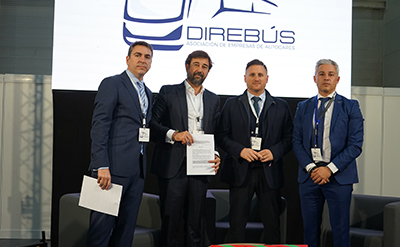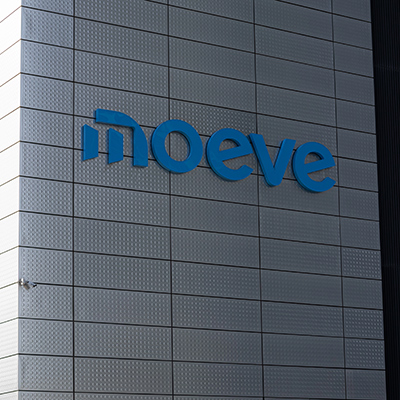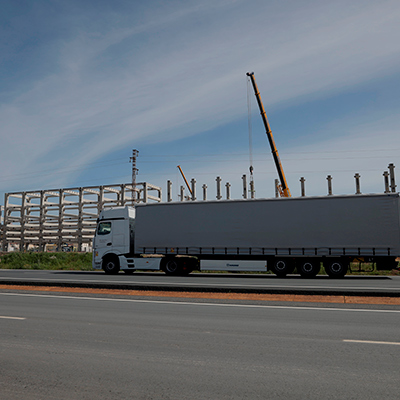- The association, which comprises more than 700 coach companies nationwide, has joined this initiative to accelerate the decarbonization of its operations by using renewable autogas and other renewably-sourced fuels
- The partnership between Cepsa and BeGas is an agreement covering the entire value chain of professional urban transport, which now includes the participation of ten companies and organizations in the sector
- Bioautogas can reduce CO2 emissions and levels of suspended particulate matter and NOx by up to 90% compared to traditional fossil fuels, as well as reducing noise pollution.
The incorporation of Direbus, which brings together more than 700 companies in the road transport sector of discretionary and regular public passenger services, reflects this sector's commitment to advancing in the decarbonization of its operations and searching for sustainable mobility solutions.
With this new member, the comprehensive partnership led by Cepsa and BeGas now has 10 partners from the public and private sectors: the vehicle and machinery manufacturers Mobility Bus, Herko, Buxo Trucks, Socage, Aebi Schmidt Ibérica and Revenant, the companies Urbaser and Sulo, which have vehicles of this type in their fleets, ANEPMA (National Association of Public Environmental Companies) and Direbus.
This partnership brings together the entire value chain of this sector (engine manufacturers, vehicle manufacturers, energy producers and consumers) with a common goal: fighting climate change by reducing the sector's carbon footprint and reducing pollution in cities. Consequently, the members of this partnership support the production and use of renewable autogas and renewable propane, in addition to other renewably-sourced products, in professional urban transport, such as buses, delivery vehicles, waste collection trucks, and other municipal services.
After officially becoming a member, the president of Direbus, Alfonso Taborda, stated: “The major cities in our country have gotten serious about limiting entrance to their low emission zones, regardless of the type of vehicle and service for economic activities. One of the services provided by tourist charter transportation is the transfer from ports, airports, and train and bus stations to hotel complexes in historic city centers, as well as the various outings that depart from them. DIREBUS has to make decisions, and joining this partnership is important for all SMEs that make up the transport and mobility sector.”
Moreover, Marcos Pallás, head of marketing of Cepsa’s LPG business, emphasized: "It is a source of pride for us to continue expanding this cross-cutting partnership because it means that our vocation to help our customers and the entire transport sector to decarbonize its operations continues to grow. Our strategy has a clear goal: facilitating the sustainability of transport. To achieve this we need to continue adding partners to our collaborative ecosystem."
For his part, Pedro Silva, CEO of BeGas has indicated that "this new member is another sign that internal combustion engines powered by BioAutogas are the strategic solution to achieve the 2050 objectives."
Renewable autogas is a gas of renewable origin that reduces CO2 emissions by up to 90% and reduces the emission of suspended particles and NOx, which cause urban pollution, by more than 90% compared to traditional fossil fuels, as well as reducing noise pollution. This CO2 reduction enables vehicles to meet the requirements of the 2050 agenda today.
Cepsa and BeGas: a commitment to decarbonizing transportation
The commitment to creating and promoting the partnership to decarbonize heavy urban transport with renewable autogas confirms the commitment by its founding companies to reducing emissions from heavy urban vehicles. Cepsa currently has an annual production capacity of 7,000 tons of biopropane at its energy parks and, as part of its Positive Motion strategy, the company expects to produce more than 100,000 tons of this sustainable gas annually by 2030.
For its part, BeGas Motor is a European leader in manufacturing and developing engines powered by alternative energies, such as autogas or renewable autogas, and is the only manufacturer of 100% gas engines—without the need to use a hybrid engine with diesel or gasoline—for trucks and urban buses, which has Euro VI Step E approval.




